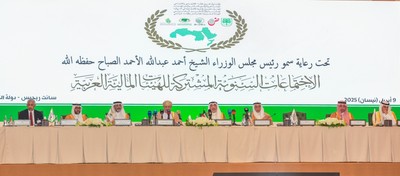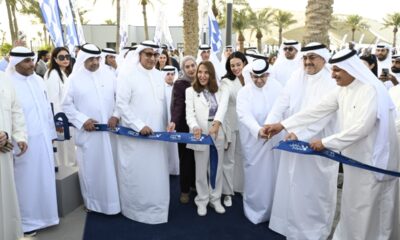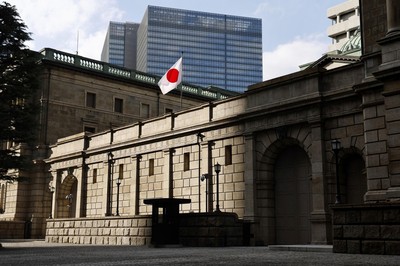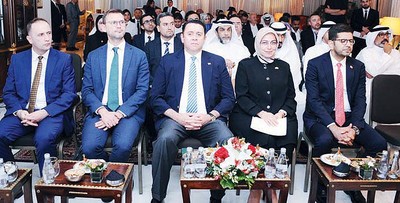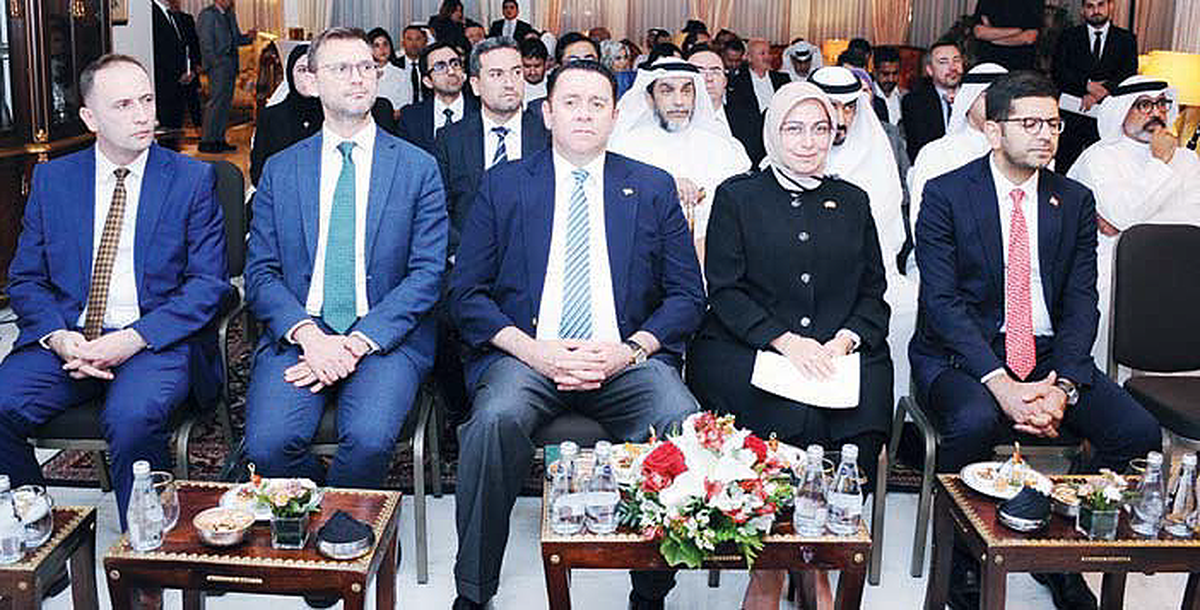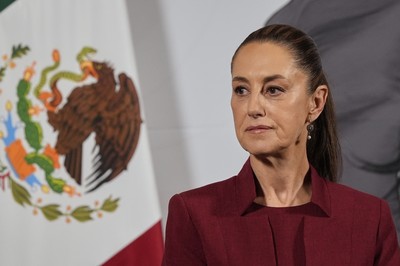KUWAIT CITY, April 9: Acting Prime Minister and Minister of Interior Sheikh Fahad Yousef Saud Al-Sabah emphasized the importance of economic cooperation and integration among Arab countries on Wednesday. He highlighted the need to unify policies and procedures aimed at strengthening economic structures, improving the business environment, and increasing productivity and competitiveness.
Sheikh Fahad made these remarks during the joint annual meetings of financial institutions and the 16th regular session of the Council of Arab Finance Ministers, which were hosted by Kuwait. He explained that the current complex phase places a historic responsibility on Arab financial institutions to intensify efforts and enhance institutional integration.
He stressed the importance of fostering the spirit of Arab solidarity, adapting to changes, and responding quickly to the needs of member states. “Today, more than ever, we must intensify our efforts,” he said. He also noted the rapid development of technology, particularly artificial intelligence, which has become a significant driver of the global economy. He pointed out that the Arab economy faces a prominent challenge in integrating these modern technologies into markets to achieve substantial growth and development.
Sheikh Fahad reiterated that Kuwait continues to support youth empowerment, human capital development, and small and medium enterprises. These initiatives, which were launched at the first development summit in 2009, also include providing job opportunities and prioritizing science, technology, and innovation.
He added that Kuwait’s commitment to supporting development in developing countries is a longstanding tradition, symbolized by the establishment of the Kuwait Fund for Arab Economic Development more than six decades ago. The fund has become a milestone in Arab and international development efforts.
Sheikh Fahad praised the role of Gulf development funds and joint Arab financial institutions in financing development projects worldwide. He emphasized that these efforts reflect a shared belief in the importance of solidarity and cooperation to achieve comprehensive and sustainable development. Kuwait, he said, will continue to support projects and decisions from the joint annual meetings of Arab financial institutions that align with the interests of Arab countries and elevate the aspirations of their citizens.
Omani Minister of Finance Sultan Al Habsi also addressed the meeting, emphasizing the impact of current global events on the global economy and the negative effects on the Arab region. He stressed that joint Arab financial bodies must take effective and rapid measures to confront these challenges.
Al Habsi highlighted recent decisions by the United States to impose customs duties on several countries and underscored the need to create a conducive investment climate. This, he said, would encourage the private sector, attract capital, and develop investment opportunities to achieve sustainable development goals. He noted that such efforts can only succeed through laws and regulations that foster openness to the global economy, accelerate structural reforms, combat corruption, and promote transparency and integrity.
The Omani minister praised the efforts made by Arab countries to overcome difficulties but acknowledged that many challenges remain, requiring further collaboration and alignment of strategies. He stressed the importance of enhancing coordination among Arab nations and developing flexible financial strategies to maintain economic stability and growth amid global fluctuations.
Al Habsi also called for a focus on the least developed countries in financing development, economic, and social projects to address chronic issues such as high unemployment, low-income levels, and fragile infrastructure. Additionally, he emphasized the need to tackle challenges posed by rapid technological advances and climate change.
Delegations from various Arab countries, including ministers, senior officials, and economists, are participating in the meetings. These include officials from the Arab Monetary Fund, the Arab Fund for Economic and Social Development, the Arab Investment and Export Credit Guarantee Corporation, the Arab Bank for Economic Development in Africa, and the Arab Authority for Agricultural Investment and Development.

 Business17 hours ago
Business17 hours ago
 Politics10 hours ago
Politics10 hours ago
 Latest News15 hours ago
Latest News15 hours ago
 Latest News17 hours ago
Latest News17 hours ago
 Latest News8 hours ago
Latest News8 hours ago
 Politics7 hours ago
Politics7 hours ago
 Latest News7 hours ago
Latest News7 hours ago
 Politics8 hours ago
Politics8 hours ago
